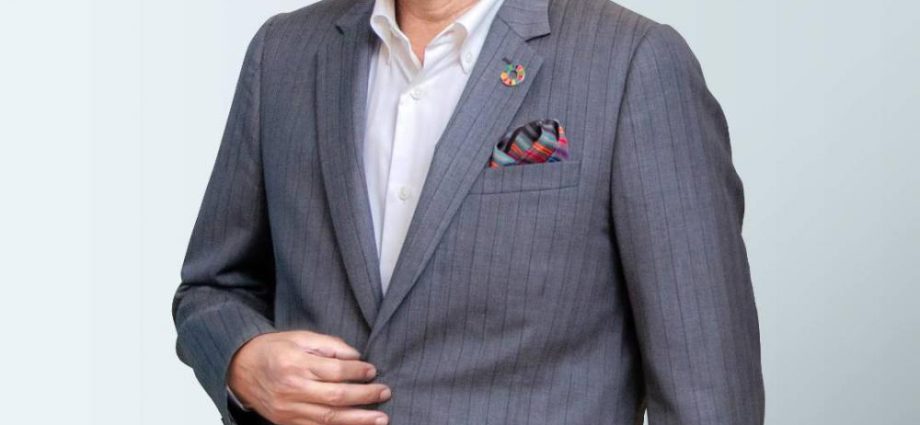Mitr Phol Group, under the leadership of Chairman Buntoeng Vongkusolkit, stands out as a beacon of ethical business practices in the sugarcane-processing industry with its steadfast commitment to sustainability and corporate social responsibility.
Mr Buntoeng has meticulously woven these principles into the very fabric of the company, shaping Mitr Phol’s strategy to not only be a world-class sugar producer, green energy and bio-based product maker, such as fertiliser, animal feed, biomaterials, wood substitute materials, but also a conscientious steward of the environment and the communities it serves.
This unwavering dedication to sustainable practices has not only defined Mitr Phol’s identity but has also set a new standard for responsible corporate conduct in Thailand and beyond.
With subsidiaries operating in Thailand, China, Australia, Laos, and Indonesia, the company has a strong regional presence.

Buntoeng Vongkusolkit, Chairman of Mitr Phol Group, says his company pays utmost attention to sustainability and social responsibility. It has been one of its business strategies from the start, along with environmental issues.
For over 66 years, Mitr Phol has produced quality sugar for households across Thailand. Today, the company wants to reaffirm its commitment to environmental sustainability and improving cane growers’ livelihoods, said Mr Buntoeng.
“Sustainability and social responsibility have always been embedded in our business strategy from the start,” he said.
In Thai, the word mitr means “friend”, while phol means “result”. As such, the company’s name is a reference to collaboration among partners which have gone through ups and downs together, he explained, before pointing out Mitr Phol’s motto: “Grow Together.”
As the third generation of Mitr Phol Group, Mr Buntoeng said he continues to work closely with the cane growers Mitr Phol works with.
Speaking to the Bangkok Post, he said his father taught him to treat cane growers with fair operating practices when weighing their harvest because it takes a massive effort to grow sugarcane.
The advice resonated deeply with Mr Buntoeng, inspiring him to take care of his company’s stakeholders. It is necessary to teach cane growers the necessary skills and knowledge to ensure that they can increase productivity, he said.
To ensure the company remains in the green as it gives back to the cane growers, Mitr Phol practices a smart farming model, “Mitr Phol Modernfarm”, which ensures optimum yield and quality while minimising time and production costs, as well as being eco-friendly.
The model includes knowledge building among cane growers of sustainable sugarcane farming. It also encourages the use of machinery and digitalised control, and modern irrigation techniques, he said.
“Cane growers are encouraged to apply minimum tillage to their land, making designated paths to ensure minimal damage to crops from traffic, plant legumes in between harvests and use the sugarcane leaves as fertiliser. These practices result in a reduction of fossil fuel use in machinery, reducing soil compaction and burning of sugarcane, thus creating a greener way of sustainable development in agriculture,” he said.
The leaves, he added, can also be used as fuel for its factories, which use biomass plants to generate power.
Apart from that, Mitr Phol opened the Mitr Phol Modern Farm Academy in 2019 to educate modern farming practices.
Mr Buntoeng said the company is currently working with Kasetsart University on a subject called “Comprehensive Modern Sugarcane Manufacturing”, which second-year bachelor’s degree students can take to get study credits.
“We need to teach the younger generation modern farming and, at the same time, cost control and effective management,” he added.
Mitr Phol is certified by Bonsucro, a leading global sustainability platform which sets the standard for sustainable sugarcane production.
To be certified, Mitr Phol had to prove that its production chain is free of child labour and illegal migrant workers, that its workers are paid fair wages in accordance with the law, that none of its sugarcane plantations encroach on conservation areas, and that it uses minimal amounts of pesticide and herbicide to produce its products, including green cane harvesting.
A new, greener way of smart farming by the use of digitalisation and effective management brings about solutions to the ageing society, climate change, as well as economic value creations from sugarcane.
“The sugarcane industry is recognised as a circular and zero-waste model. For example, the use of water resources in the production process is mainly obtained through condensation from cane, which possesses 60% of water in itself approximately, he said.
“The water from this qualified condensation is reused in our production process and circulated to sugarcane farming during drought periods,” he added.
He said Mitr Phol is committed to the research and development of sugarcane as a biofuel, which has made the company the first Thai producer of sustainable ethanol as certified by Bonsucro.
In addition, Mitr Phol is committed to following the UN Sustainable Development Goals. The company is complying with 12 out of 17 SDG goals, he said.
According to S&P Global’s evaluation of company sustainability. Mitr Phol has been recognised, for the fifth year in a row, as the world’s second-leading sustainability-conscious organisation in the food industry.
The company has participated in the assessment and noticeably improved, soaring from the 17th rank in the first year to the 2nd spot recently.
During the Covid-19 pandemic, the company donated medical equipment to help local communities.
The company has also provided more than 200 scholarships to cane growers’ children in areas where the company has a production base.
He said the company aims to be carbon neutral by 2030 and have net zero emissions by 2050.
Sustainability in agriculture is the start of sustainable development for people, profit and the planet as it serves people better and offers a greener way of living and food, green energy from bio-mass power, and opportunity for economic value creation from bio-based industries.
“We can’t live without people around us and the environment. Seeing everyone grow together is our happiness. This is the true meaning of ‘sustainability’ ”, he ended.

